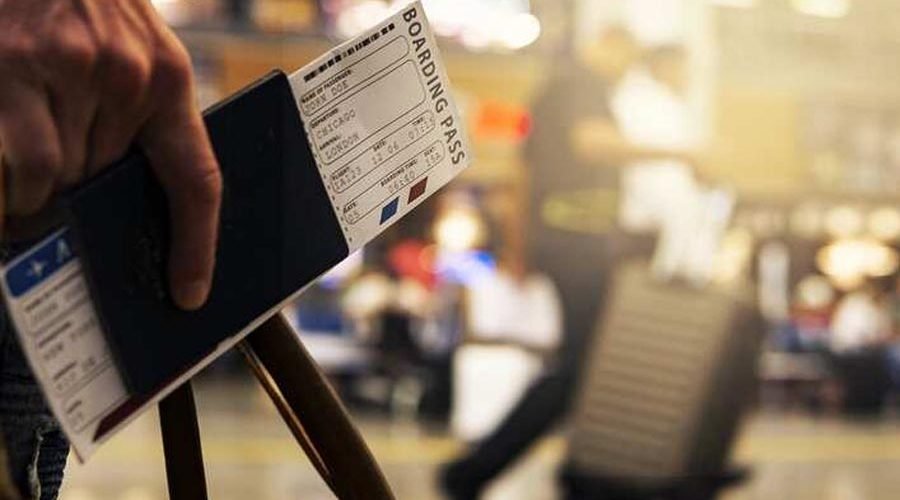Table of Contents
1. Confirm your Reservations
Picture this, you show up at the airport and soon find out that the ticket you thought had been booked by a travel sponsor or agent was merely reserved and never paid for. Frustratedly, you have to turn around and get a cab and head home instead of going on your business trip.
It’s always important to confirm your reservation at least 48 hours before traveling. Confirming means going the extra step to ensure everything is verified. Look up the booking reference number online alongside your name for your airline tickets to ensure that the ticket is actually purchased, not just reserved.
For your hotels in Scotland, get in touch with the hotel directly to double-check the address and the dates. If you want some special accommodations, such as a refrigerator for medication or an accessible room, confirm these details as well. Do the same for train tickets, car rental reservations, and other travel arrangements. It’s a lot easier to fix these problems two days in advance than on the spot.
2. Don’t Go for Nothing Less than a 3-Hour Layover
If you’ve heard any business travel horror stories, there’s probably a whole lot of them involving “the airport dash”; hurriedly rushing into a swarming terminal that anyone who has watched Home Alone can vividly picture.
When booking your business travel, it’s wise to never settle for layovers shorter than 3 hours, no matter who is making the itinerary. A few years ago, this advice was a bit different, but with over 11% more cancelled or delayed flights compared to the pre-pandemic era, 3 hours has become the new minimum. For example, for a SAS claim for delayed flight, gather all relevant documents related to your delayed flight, including boarding passes, tickets, and any communication with SAS. You will need these documents to support your claim.
Once you get your itinerary for your business trip, be sure to closely check the layover times. In case they are asking you to make connections with limited time, you’re better off not approving the ticket. See if you can get a new itinerary instead. As you arrive at an airport, get there two hours early for airports that are familiar to you and plan for three hours for those that are not.
3. Renew your IDs
For those that have not traveled much in the past few years, confirm the expiration date of your passports and IDs some time in advance, so that you will have enough time to renew these documents. Keep in mind that some agencies are still behind in their processing times since the onset of the Covid-19 pandemic.
When it comes to passports, it’s always advisable to leave a trusted person with a photocopy of your ID page, no matter the kind of trip you’re taking. You could also save a digital copy for yourself, as long as you store it in a secure place. For instance, keeping a copy on a cloud service with in-built encryption is all right, especially if it’s backed by a strong password. This will come in handy if your passport, by any chance, gets stolen or lost, as you can easily get your details from this page. This should help the nearest consulate or embassy cancel the old one and give you a new emergency passport a lot faster.
4. Check with your IT Department for Requirements
Are there things you need to connect to all the systems and servers you use for work while on the trip? If you have not traveled in a while, your IT team may have been beefing up its security policies. This could mean needing a special VPN connection, as you may find your machine automatically kicking off any Wi-Fi connection it deems not secure enough. So check with your IT team before you travel. It also doesn’t hurt to get the contact details of someone who could help you in case you get locked out of Slack, email, your VoIP phone system or any other communication tools that your team uses.
5. Bring Small Bills for Tips
Did you know it’s good practice to tip the cleaning staff while checking out of a hotel? Many people are still unaware of this tipping rule. And while tipping is not exactly a worldwide custom, if you’re in Canada and the US, you should at least tip the hotel staff a few dollars for every day of your stay.
When visiting other countries, tipping might not be expected, but will always be appreciated. You can simply leave some cash in the room when checking out. If you have stationery, write “Thank You!” on a slip of paper and the staff will know what it’s for.
You might also want to tip the bellhop of the hotel in case you need to check your luggage. Plus, what if you drove to a meeting and the parking is valet only? If you don’t bring any cash, you can simply go to an ATM that can dispense small bills, or just walk to a local bank branch to get some fives and singles.





